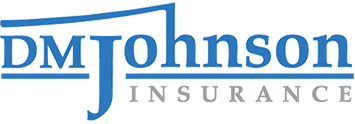Understanding Liability Coverage for Connecticut Businesses
Connecticut businesses face a variety of risks, from property damage and bodily injury claims to costly lawsuits that can threaten financial stability. Two primary forms of protection—commercial liability insurance and Connecticut umbrella insurance—play crucial roles in safeguarding your assets. Knowing the difference and choosing the right coverage is essential for long-term business security.
What Is Commercial Liability Insurance?
Commercial liability insurance is the foundation of most business insurance portfolios. It covers claims related to:
- Bodily injury or property damage caused by your business operations
- Legal defense costs
- Judgments and settlements within the policy limits
However, standard liability policies have coverage limits. If a claim exceeds these limits, your business could be exposed to significant out-of-pocket expenses.
What Is Connecticut Umbrella Insurance?
Connecticut umbrella insurance acts as a supplementary layer of protection. When a claim surpasses the limits of your primary liability policies—such as general liability, commercial auto, or employer’s liability—umbrella insurance steps in to cover the excess amount.
Key features of umbrella insurance:
- Extends coverage beyond the limits of underlying policies
- Covers a broader range of risks, sometimes including claims not covered by standard policies
- Protects against catastrophic losses that could otherwise bankrupt your business
For example, if your commercial auto policy covers up to $2 million and a lawsuit results in a $2.5 million judgment, your umbrella policy would pay the remaining $500,000.
Umbrella vs. Excess Liability: What’s the Difference?
Commercial Umbrella Insurance
- Coverage scope: Broader; may cover additional risks
- Policy application: Can apply to multiple underlying policies
- Risk protection: Comprehensive, multi-policy protection
Excess Liability Insurance
- Coverage scope: Only extends existing policy limits
- Policy application: Applies to one specific policy
- Risk protection: Limited to the terms of one policy
Umbrella insurance is generally more comprehensive, while excess liability is more restrictive in scope
How to Choose the Right Coverage for Your Connecticut Business
Selecting between commercial liability and Connecticut umbrella insurance depends on your business’s risk profile and industry needs:
- Evaluate your risk exposure: Businesses in high-risk industries (e.g., construction, manufacturing) may need higher coverage limits.
- Assess existing policy limits: If your current liability coverage may be insufficient for catastrophic claims, umbrella insurance is advisable.
- Consult with a professional: An experienced insurance advisor can help you analyze your risks and recommend the optimal coverage mix for your Connecticut business.
Why D.M. Johnson Insurance Agency?
At D.M. Johnson Insurance Agency, we specialize in helping Connecticut businesses navigate the complexities of liability coverage. Our team will assess your unique risks and tailor a solution—whether it’s standard liability, Connecticut umbrella insurance, or a combination—to ensure your business is protected against even the most severe claims.
Protect Your Connecticut Business Today
Don’t let unexpected lawsuits or accidents jeopardize your business. Contact D.M. Johnson Insurance Agency to discuss your liability coverage options and discover how Connecticut umbrella insurance can provide peace of mind and financial security for your operations.





